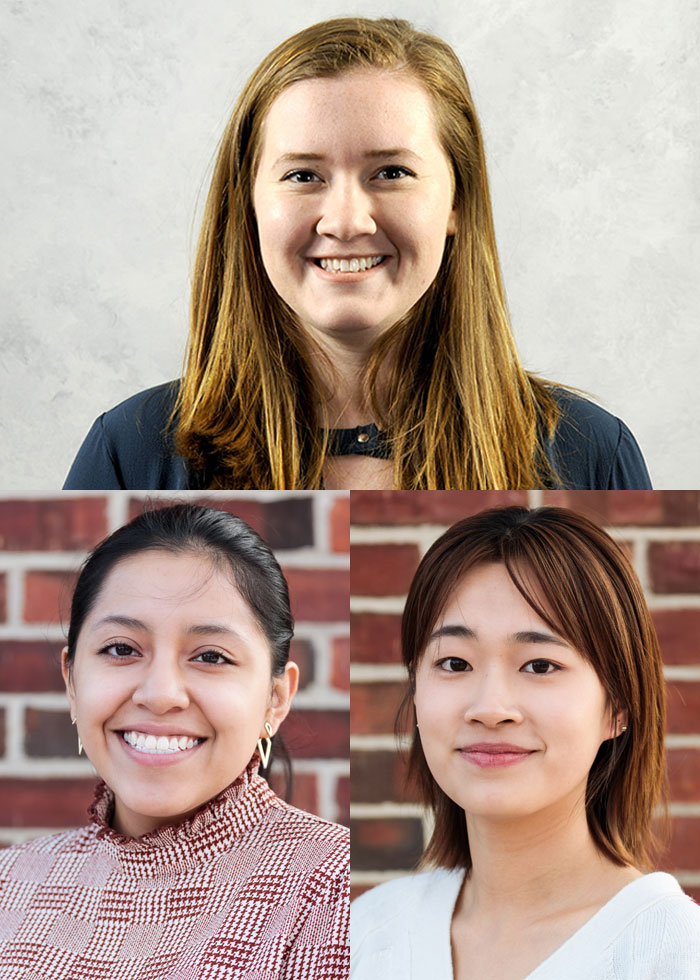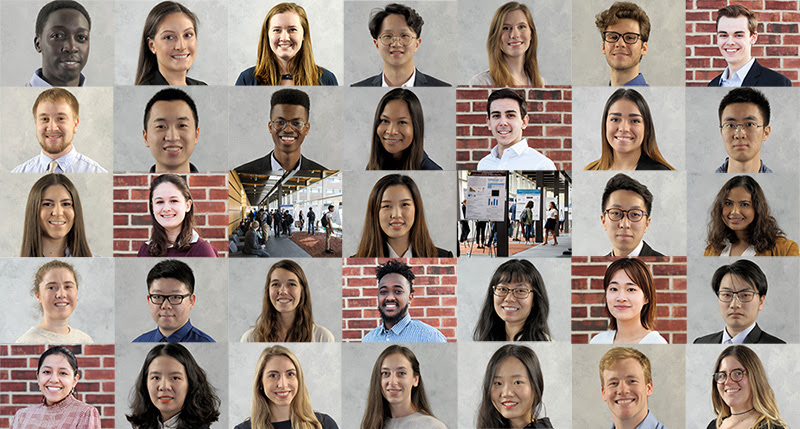
Student: Emma Leeds, Angie Orellana and Simba (Yue) Wu
Project: Development of Sustainable Techniques for the Production of Nutrient-Rich Compounds from Wastewater
Institution: Lafayette College
Major: Environmental Science, Civil and Environmental Engineering
Advisor: Art Kney
Abstract
Nutrient pollution in waterways creates widespread environmental and human
health issues in America and is often caused by both fast-dissolving industrial fertilizers and wastewater treatment plant (WWTP) discharge that is not monitored for nitrogen or phosphorous. The objective of our research, conducted through the Civil and Environmental Engineering Department at Lafayette College, is to decrease both of these sources of nutrient pollution while also addressing the increasing global food demand by optimizing a process that creates sustainable fertilizers from wastewater. By adding a magnesium salt to nutrient-high liquid waste from WWTPs, a magnesium-ammonium-phosphate (MAP) mineral will precipitate from the water that can be used as a slow-dissolving fertilizer in place of current industrial fertilizers that are obtained through energy-intensive methods. By precipitating out a sustainable fertilizer from wastewater, we reduce the amount of nutrient pollution contributed by both the WWTPs and industrial fertilizers while creating a sellable product.
Currently, magnesium chloride (MgCl 2 ) is the most common magnesium-salt used to precipitate out MAPs from WWTPs, and the chemical cost of MgCl 2 can represent up to 97% of the total MAP production cost. This high chemical cost currently prevents the MAP production process from being implemented at WWTPs across the country. Our research is thus currently focused on decreasing this cost by using naturally occurring, cheaper magnesium sources in place of MgCl2, such as MgO and MgCO 3 . The issue with these magnesium salts is that they are insoluble, and so in our lab we have created a two-tank system that utilizes CO 2 pressure and Donnan dialysis ion exchange to dissolve the magnesium (Figure 1). The output of this system is a solution with magnesium rich solution conducive to MAP production when mixed with wastewater.
About Emma Leeds
Emma Leeds, is a senior at Lafayette College studying environmental science and Spanish. Emma has been working on nutrient-pollution reducing technologies with Dr. Arthur Kney for the past three years and hopes to work in renewable energy or climate change mitigation post-graduation. On campus, Emma enjoys working as an ECO-rep, working in a prison therapy program, and leading a pen pal club that connects local elementary school students with Lafayette College.
About Angie Orellana
Angie Orellana is a third-year undergraduate student pursuing a B.S. in Civil and Environmental Engineering at Lafayette College. She volunteers in the local community center and is on the Executive Board of Alternative School Break on campus where she coordinates domestic and international service trips. She is a Clare Boothe Luce Scholar and she works in an environmental engineering research project about nutrient recovery from municipal wastewater. After graduation, she plans to pursue her interests in water quality in a masters program.
About Simba (Yue) Wu
Yue Wu, is a junior at Lafayette College, pursuing a B.S. in Civil and Environmental Engineering, an A.B. in Mathematics and a minor in Environmental Science. She is a member of the Tau Beta Pi Engineering Honor Society and passionate about engineering works. She has been an EXCEL Research Scholar since 2016, continuously working in the environmental engineering lab on a research project about nutrient reclamation from municipal wastewater. Yue is also conducting an Independent Study in the geotechnical engineering field on computer modeling of column supported embankments. She is keen on improving engineering technologies and looks forward to continuing studying in graduate school after graduation.



